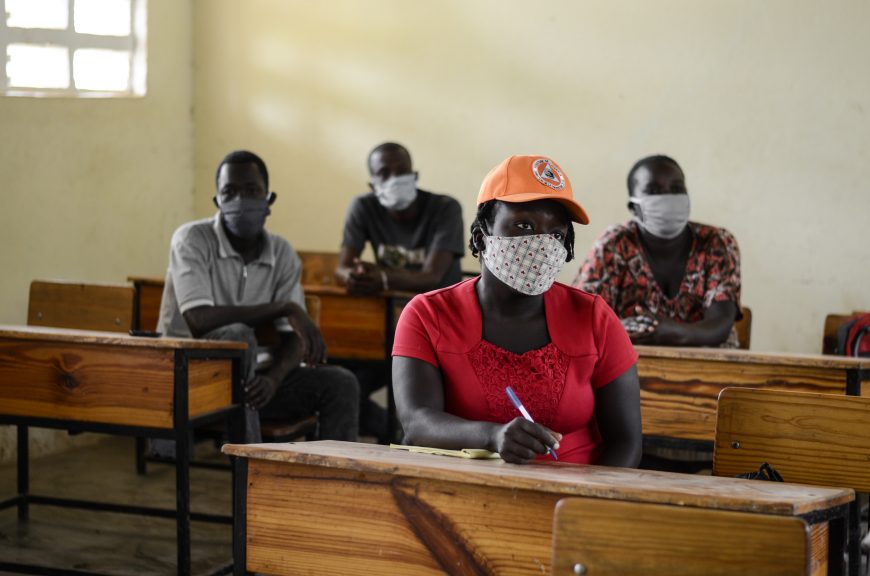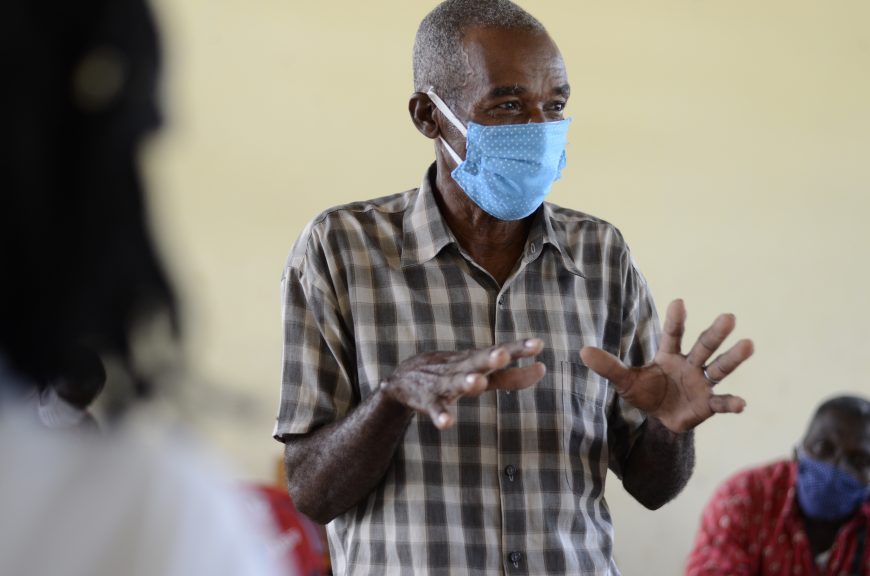The role of feminist civil society organisations in Haiti is crucial in contexts where gender-based violence tends to increase, such as the post-disaster context following the earthquake of 14 August 2021 or contexts of urban violence with increase in clashes between arm gangs in the capital.
The civil society occupies a central place in Haiti: it is a vector of change, a vector of mobilisatiton and a forum for exchange for various populations groups with diverse interests. Feminist organisations allow the defense of women’s rights and their inclusion in nationals policies. Haitian women have the right to vote and stand for elections since 1950, however in the last elections in 2017, only one woman was elected to the Senate, which represents 0.3% of women in a society where they represent 52% of the population. Women must face oppression due to their gender as well as a lack of financial and social resources.
Feminists CSOs are, in this context, one of the few actors capable of carrying the women’s claims. With the support of the French embassy in Haiti, ACTED intervenes to strengthen, structure and professionalize 15 Haitian feminist organisations for 18 months in eight of the country’s ten departments.
A poorly structured and supported civil society
The main difficulty that Haitian CSOs face is the lack of available and accessible funding, even more so for organisations working on gender issues. Organisations endure a regular lack of state subsidies which, when made available, are not sufficient to cover the numerous initiatives underway. Foreign grants are the main source of funding for Haitian CSOs, creating a high level of dependency and not encouraging their development in terms of capacity and structure. The low resources of CSOs directly impact the quality of programmes, the scope and the very implementation of projects.
The local political environment in some areas of the country, especially in those under the control of armed gangs, is not always supportive of the development of civil society and its activities. The lack of trust between local authorities, the communities that CSOs serve and the organisations does not facilitate their development.
The project implemented aims to strengthen, structure and professionalise 15 feminist organisations in the Haitian civil society. Targeted organisations are those that have developed projects on women’s rights, sexual and reproductive health, the elimination of gender-based violence or the promotion of empowerment.
ACTED’s support is based on three axes: organizational capacity building, support in the implementation of feminist micro-projects and the reinforcement of CSOs’ skills.

The organizational capacity building of Haitian women’s organisations is based on a methodology developed by ACTED. It allows to support civil society organisations in their governance and administration, financial management, project cycle management, external relations and resource mobilization. CSOs benefit from a personalized follow-up and multiple training cycles on at least one aforementioned aspect.
In parallel to organizational capacity building, ACTED supports civil society organisations in the concrete application of the knowledge acquired through the implementation of a project funded directly by the French Embassy. CSOs develop their project through regular mentoring, support to the review and production of financial and programmatic documentation and the organization of two training cycles.

The second cycle of training is in collaboration with a feminist civil society organisation on gender issues related to projects supported and implemented by CSOs. These projects will focus on social and civic leadership, empowerment and participation in economic life, sexual and reproductive rights and health, and the fight against gender-based violence.
ACTED encourages the access of CSOs to coordination and dialogue platforms, and by extension to more development, funding and collaboration opportunities, notably by encouraging the sharing of experiences, expertise and resources. This project also aims to promote a better cooperation within Haitian feminist civil society to better respond to gender-related needs in Haiti.